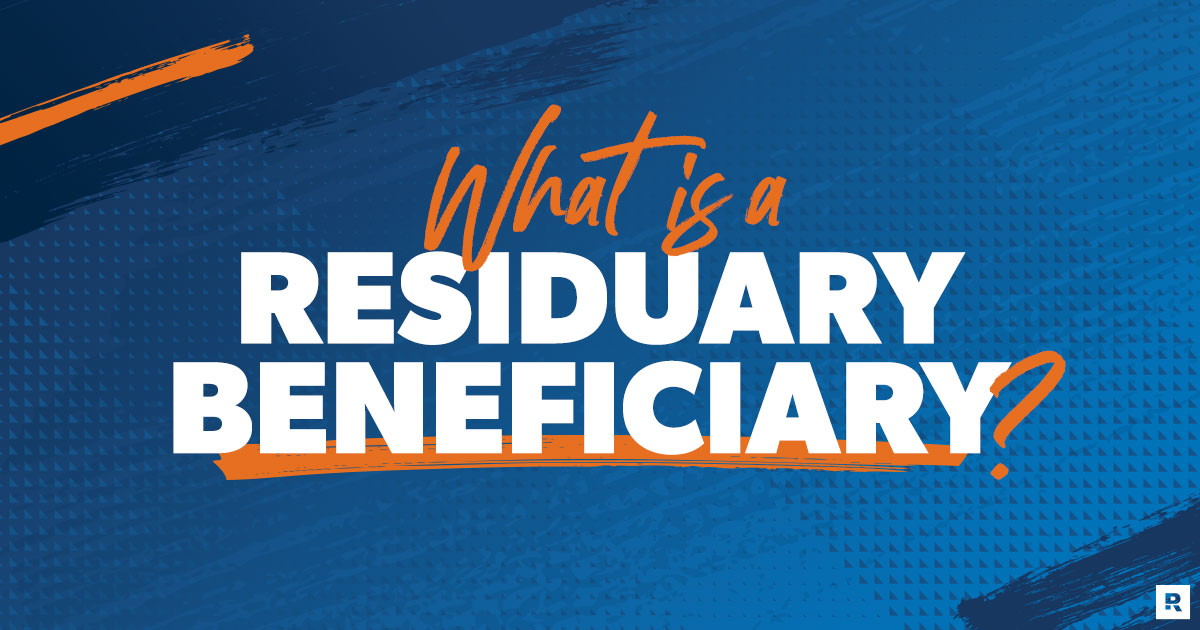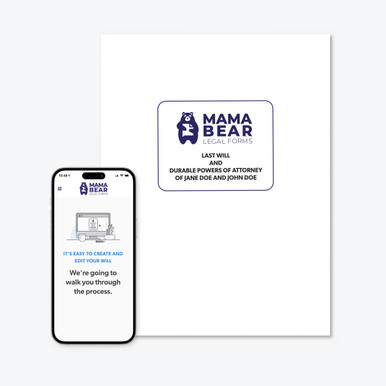Residuary Beneficiary: What Is It and Do I Need One?
5 Min Read | Feb 28, 2025

Residuary beneficiary . . . that sounds a lot like residue. You know, the stuff that’s left over when you remove something sticky.
But when it comes to types of beneficiaries, residuary can take on a much more important meaning than just something that’s left over. In fact, the chances of a residuary beneficiary inheriting a whole estate are greater than most people think.
Let’s walk through how it works.
- What Is a Residuary Beneficiary?
- When to Use a Residuary Beneficiary
- Residuary Beneficiary Scenarios
What Is a Residuary Beneficiary?
A residuary beneficiary is a person or organization who’s been named to receive assets from a will or a trust. Let’s chew on that a minute. Residuary beneficiaries can inherit stuff in three ways.
The first way is when a decedent doesn’t name a primary beneficiary or contingent beneficiary for an asset.
Save 10% on your will with the RAMSEY10 promo code.
Whoa, hold up! Did your eyes glaze over when you were reading that sentence? Ours too. Let’s define some things. A decedent is the person who wrote the will. A primary beneficiary is the first person in line to receive the items from the will. And a contingent beneficiary is the person who will receive the items from the will if none of the primary beneficiaries can.
So, if the decedent didn’t name a primary or contingent beneficiary for an asset, the residuary beneficiary gets it.
Now that we’ve got that straightened out, let’s dive back in: Another way residuary beneficiaries can inherit stuff is if the named primary or contingent beneficiary aren’t available, for whatever reason.
The third way residuary beneficiaries can inherit assets is after assets have already been given to the primary beneficiary(s).
For example, say your primary beneficiary dies before you do, and you forgot to name an alternate beneficiary (either contingent or residuary). In this case, your assets will go back to your estate and go through probate, which can be a big mess. Ouch!
When to Use a Residuary Beneficiary
You should always name a residuary beneficiary. Think of this choice as part of your backup plan—an important step for making sure your stuff goes where you want in case things go south.
Think what could happen if you skipped the residuary beneficiary step. If your primary and contingent beneficiaries aren’t available or reject your gift (hey, it happens), you’re leaving the distribution of your assets up to the probate process in your state. Don’t do this!
Let’s look at some examples of how the residuary beneficiary backup plan can play out.
Interested in learning more about estate planning?
Sign up to receive helpful guidance and tools.
Residuary Beneficiary Scenarios
Depending on the situation, a residuary beneficiary can receive nothing, a lapsed gift or a windfall. Let’s dig deeper using the examples below.
Scenario 1: The residuary beneficiary receives nothing.
Imagine Harry uses a will to distribute his entire estate. He already paid off the mortgage on his home (nice work, Harry!), and he also has a sizable high-yield savings account. Harry leaves his home to his sister Anne, his savings account to his good friend Keith, and names his ex-wife Stella as his residuary beneficiary.
When Harry dies, Anne and Keith are both able to receive their chunks of the inheritance. That means Stella, the residuary beneficiary, receives nothing. Sorry, Stella!
Scenario 2: The residuary beneficiary receives a lapsed gift.
What’s a lapsed gift? Here’s an easy way to think about it: If an estate gift fails for any reason (unavailable beneficiary, unnamed beneficiary, uninterested beneficiary, etc.), the gift lapses and falls back into the decedent’s estate. Then the gift goes to the residuary beneficiary.
Here’s an example: Suppose Jason gives his prized antique Mercedes to his niece (she’s been hinting that she wants it since she was a little girl), and the rest of his estate to his wife Susan. Jason’s niece forfeits the car because, now that she’s grown, she just bought her own dream car. Jason’s Mercedes now goes to Susan because that’s who Jason named as the residuary beneficiary of his estate.
Scenario 3: The residuary beneficiary receives a windfall.
In this one, Mary names her brother Paul as the beneficiary of her sizable estate, which includes extensive real estate holdings, antique cars, a savings account, and a hefty life insurance policy. She names her closest friend Dee as the residuary beneficiary of her estate.
After Mary dies, her executor finds a rare stamp in one of Mary's desk drawers that's valued at over $1 million dollars. Because Mary named Dee as her residuary beneficiary, Dee will get the stamp as part of the residuary estate.
All of these different scenarios have one thing in common: the decedent was smart enough to name a residuary beneficiary of their estate. If they hadn’t, when their first and second choices became unavailable, their stuff would have been passed out to beneficiaries chosen by a probate court. Nobody wants that to happen!
Don't Know Where to Start With a Will?
Download our will worksheet to get started.
Don’t Leave Big Decisions Up to Strangers
Our advice? Always name a residuary beneficiary. Unless you want your family to deal with with probate court red tape, and you’re okay with strangers giving away your stuff—and we’re guessing you don’t want either of those things.
The best solution we’ve found is to create your will online and name a residuary beneficiary in it. We recommend RamseyTrusted provider Mama Bear Legal Forms. You can create your will (and name your residuary beneficiary) all in less than 20 minutes.





